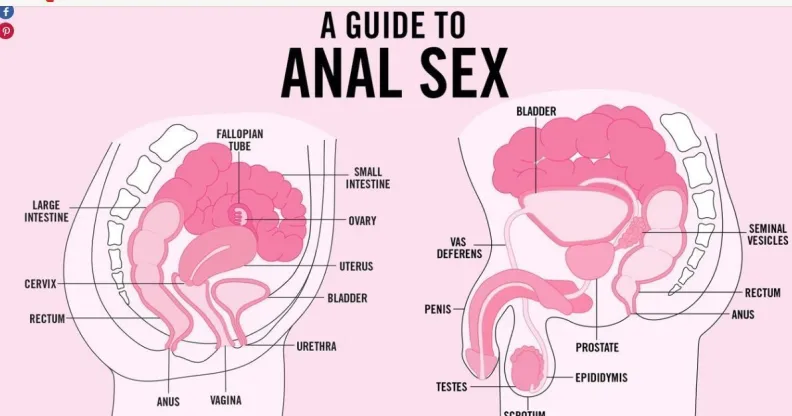This study proves just how important Teen Vogue’s controversial guide is

Teen Vogue is still making headlines after controversy over their factual guide to anal sex published earlier this month.
The article gave an accurate, scientific description “for teens, beginners, and all inquisitive folk.”
It described the act for both those with prostate glands, and those without, prompting outcry from some parents and religious commentators.

Despite backlash, many people have defended Teen vogue’s article and what it means for LGBT+ sex education.
And this study shows just how vitally necessary the guide is.
One in five 16-24 years olds report having had this type of intercourse in the past year – more than ever before.
However, it seems that knowledge about this type of sex, particularly among young people, is misinformed and problematic.
It said lack of information was leading to young women experiencing “painful, risky and coercive” sex.
The research was conducted through in-depth interviews with 16-18 year olds across the UK, sampled for variation in socioeconomic background and education level.
One key finding was that both men and women seemed to think that persuasion and coercion were normal.
“I think it’s definitely the boy that pushes for it from watching porn and stuff, they wanna try it. The girl is scared and thinks it’s weird, and then they try it because the boyfriend wants them to. They normally don’t enjoy it because they’re scared,” one of the male participants said.
There were also a number of responses that reported the man attempting this type of penetration without any consent from their partner.
One participant said that if a woman said ‘no’ when he started “putting [his] finger in”, he might keep trying: “I can be very persuasive. Like sometimes you just keep going, just keep going till they just get fed up and let you do it anyway”.
Male participants admitted to “trying it” without asking, sometimes using the excuse that “it slipped”.
“As soon as the whole incident happened where he didn’t warn me it just hurt. It was just pain. It was just like – no. No one could possibly enjoy that. It was just horrible,” a woman interviewee said.
The Teen Vogue article put a strong emphasis on a need for “enthusiastic consent” and the use of condoms.
“Have a one-on-one with your partner and let them know that this is something you want to try,” the article says.
“Be honest about your feelings about it. In a healthy relationship, you should be able to discuss anything openly. Everyone wants to have a good experience. If they are into it, go ahead and get started.”
The young people interviewed suggested that condoms were often not used, and when they were it was usually for hygiene reasons, not sexually transmitted infection (STI) prevention.
Some interviewees incorrectly believed that anal STI transmission was impossible, or less likely than with vaginal intercourse.
It was also taken for granted by most of the participants that the sex would be painful for the woman. Less painful techniques, such as slower penetration, were rarely discussed.
Only one woman in the study talked about having any physical pleasure herself in her account.
“If something hurts, say so and stop,” the Teen Vogue article says. “Take a breather. Be sure to relax as much as possible. If you tense up, it will make things much more difficult and therefore less fun.”
Although there was protest against Teen Vogue’s article, this study makes it clear that a lack of education has an extremely harmful effect on the sexual relationships of young people.

